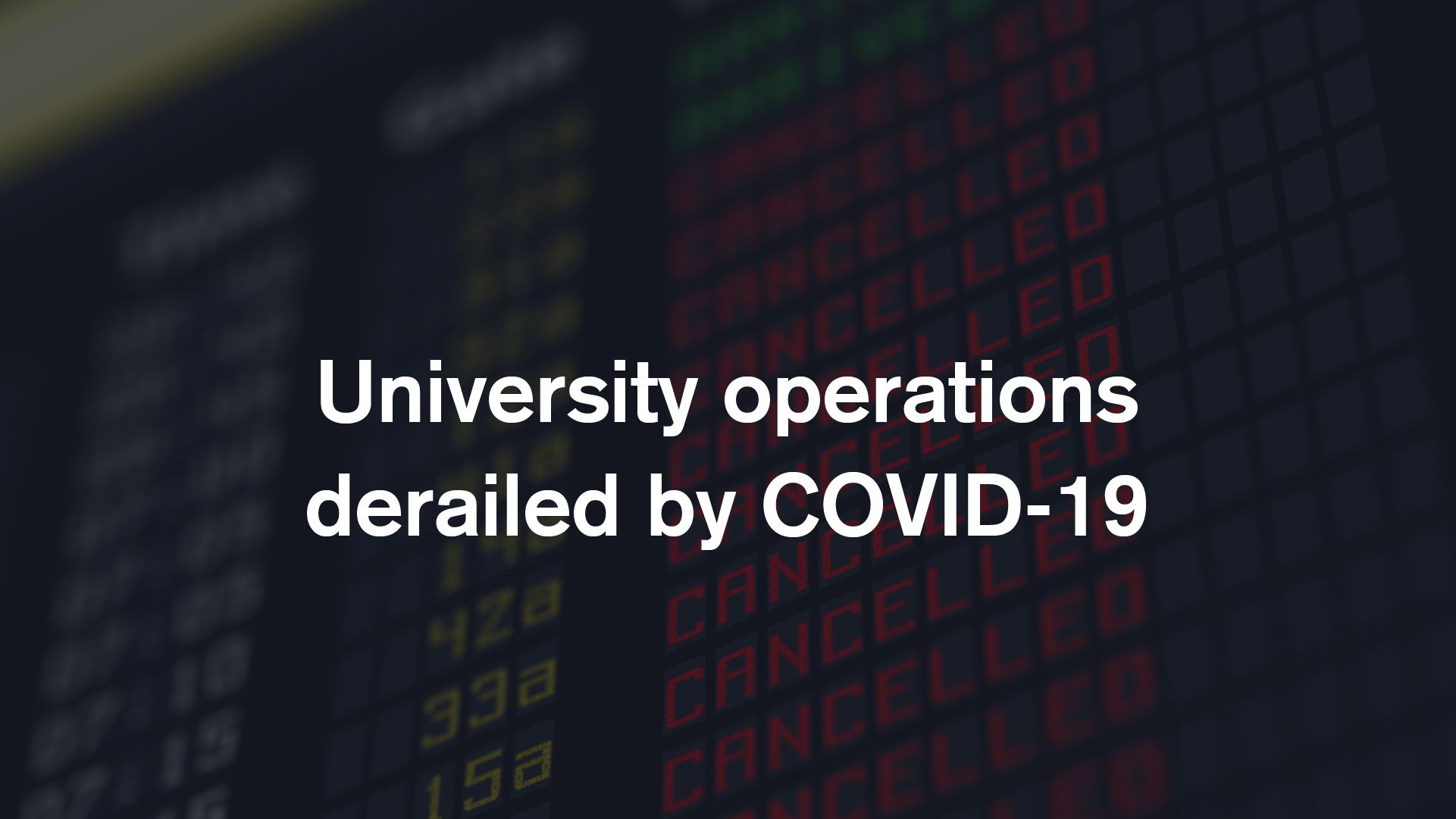Thousands of students housed around the world
As the COVID-19 pandemic spread around the world in early 2020, a university headquarterd in an urban area faced, almost overnight, a dire disruption to its operations. Along with the cost of coordinating the return of international students to their homes and American students studying abroad, the pandemic led to the cancellation of all summer programming and a sharp decline in enrollment for the remainder of the 2020/21 school year. Making matters worse was the burden of the fixed costs for the year associated with housing and educating thousands of students over six continents, across nearly two hundred student housing agreements and leased academic centers.

It was a perfect storm that threatened the university's sustainability and required immediate action.

Overwhelming commitments
As the magnitude of these challenges rapidly became clear, DBI was engaged to both address the crisis and position the university to resume post-covid operations successfully. Within a matter of weeks, the DBI team developed a strategy based upon the team's exhaustive summary of the student housing obligations and leases, categorizing them by lease terms, monthly operating costs, security deposit payments, and penalties for early termination, in order to understand the breadth of the university’s financial exposure.
Preserving the institutional reputation
An important consideration during this process was the impact of winding down programs in the context of the university’s educational mission. Its reputation relied significantly on offering an extensive study abroad program, as well as hosting a significant percentage of international students in the U.S. Every program eliminated abroad would ultimately damage its long-term ambitions and hinder its ability recruit internationally. DBI worked closely with the leading stakeholders to understand which locations remained pivotal to their goals.


Negotiating meaningful savings
The university elected to terminate multiple leases and over 100 student housing agreements – what amounted to millions of dollars in contracts – and DBI proceeded to negotiate with landlords in the U.S., Europe, Asia, Latin America, and Australia. For the remaining agreements, DBI was able to negotiate a combination of deferred payments and rent reductions. As a result of these aggressive direct interventions over a period of six months, DBI was able to save the university approximately 90% of what it would otherwise have owed.
While no amount of preparation could have shielded the university from the fallout associated with the pandemic, DBI was able to work with leaders to identify meaningful short and long-term strategies to support their ongoing sustainability.
Building a lasting future
DBI’s comprehensive review of the university’s student housing portfolio in particular uncovered specific opportunities for the long-term optimization of procurement and operating protocols. DBI, working in close collaboration with the organization’s financial and facilities leadership, developed a new set of standard operating procedures to guide future housing procurement, management, and internal reporting. These new policies will be a game changer, allowing the university to organize and effectively track data across the wide range of housing leases and make informed decisions. For example, the university is now able to more accurately project when and where they have an excess capacity (or shortfall) of beds. This information has already allowed DBI to develop specific strategies to mitigate this common issue, increasing profitability and reducing headaches.


Explore More

Unseen revenue opportunity in a satellite campusProject type

Overwhelming operating costs, not enough revenueProject type

University operations derailed by COVID-19Project type

A complex renovation of a historic buildingProject type

Inadequate planning for deferred maintenanceProject type



